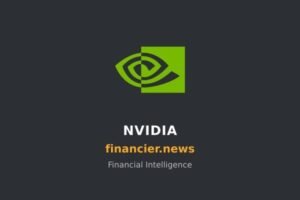$BIDU $NVDA $ETH
#ArtificialIntelligence #ChinaTech #USChinaTensions #MaxTegmark #AIandGovernance #SemiconductorStocks #TechInnovation #AIRegulation #DataSecurity #AICompetition #Geopolitics #MarketImpact
The global race for artificial intelligence dominance has intensified, drawing comparisons to a high-stakes competition between the United States and China. Yet, Max Tegmark, a prominent AI scientist, warns this “suicide race” could have dangerous consequences. While the U.S. is celebrated as home to many influential AI companies, China has aggressively pushed its AI agenda, buoyed by support from both the government and private sectors. However, Beijing walks a fine line: it aims to outpace its American rivals in innovation while ensuring AI advancements do not challenge its political rule and centralized authority. This balancing act underscores the complexities of leveraging transformational technology in a politically controlled environment.
From a financial perspective, stocks tied to China’s AI ecosystem, such as $BIDU (Baidu), are naturally under scrutiny due to Beijing’s heavy-handed influence on tech firms. Baidu has been enhancing its AI capabilities, from language models to autonomous driving technology, to compete with global giants. Similarly, U.S.-listed companies like NVIDIA ($NVDA), a key semiconductor supplier, are poised to benefit from this race as demand for high-performance chips continues to surge. The impact on cryptocurrency markets is also worth noting; Ethereum ($ETH), with its decentralized infrastructure, remains of interest to technologists exploring AI-driven applications that might bypass government control. Investors need to remain cautious about the regulatory risks tied to Beijing’s control over tech firms, highlighted by crackdowns in recent years.
China’s ambition to lead the AI revolution is fueled in part by its vast troves of data, which are integral to developing and refining machine learning algorithms. However, analysts recognize that political factors limit how far its AI sector can truly grow without external pushback. Concerns over data privacy and national security have triggered restrictions like the U.S. ban on China’s access to advanced chips, a crucial component of the AI supply chain. These restrictions add increased volatility to semiconductor stocks such as NVIDIA, which simultaneously serves both U.S. and Chinese markets. While high-growth tech sectors attract long-term investors, short-term headwinds from geopolitical tensions could deter new entrants or instigate portfolio rebalancing.
At the heart of this race lies not just economic dominance but also how AI technology reshapes society and governance models. Beijing’s strict regulatory landscape may hinder innovation in pockets of the private sector, creating opportunities for countries like the U.S. to maintain a competitive edge. However, punitive measures against Chinese AI players also risk stoking Beijing’s resolve to achieve self-reliance. Global markets, including equities and cryptocurrencies, will likely feel the ripple effects of this clash. Tech investors, in particular, should watch for any moves by Beijing to tighten regulations further or the U.S. to expand export controls, as these could drive significant shifts in capital flows and valuations across industries.











Comments are closed.